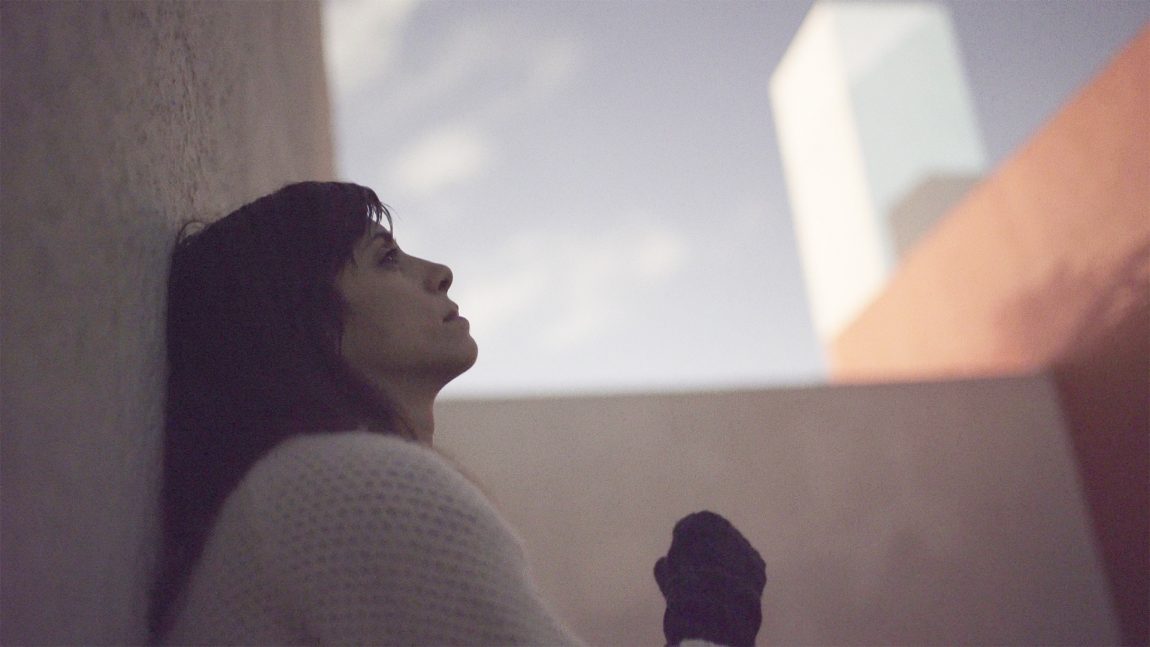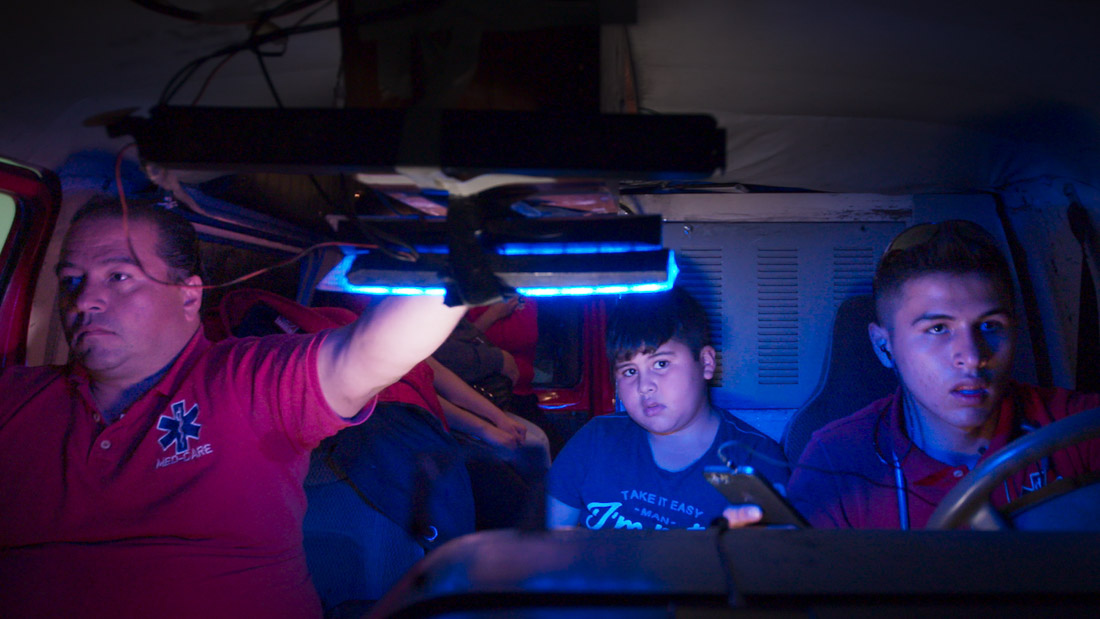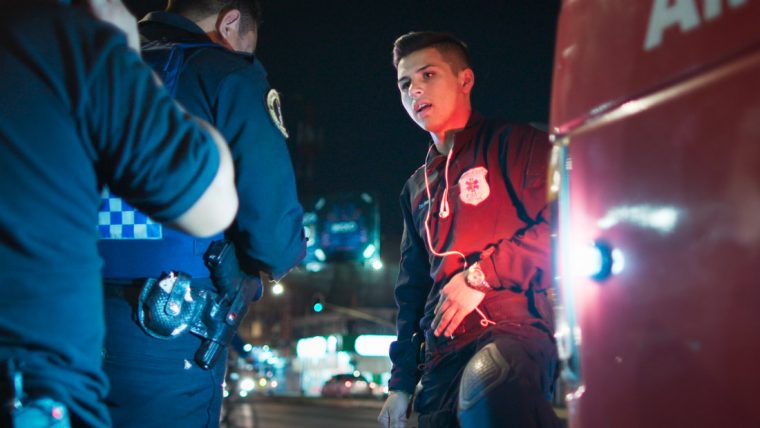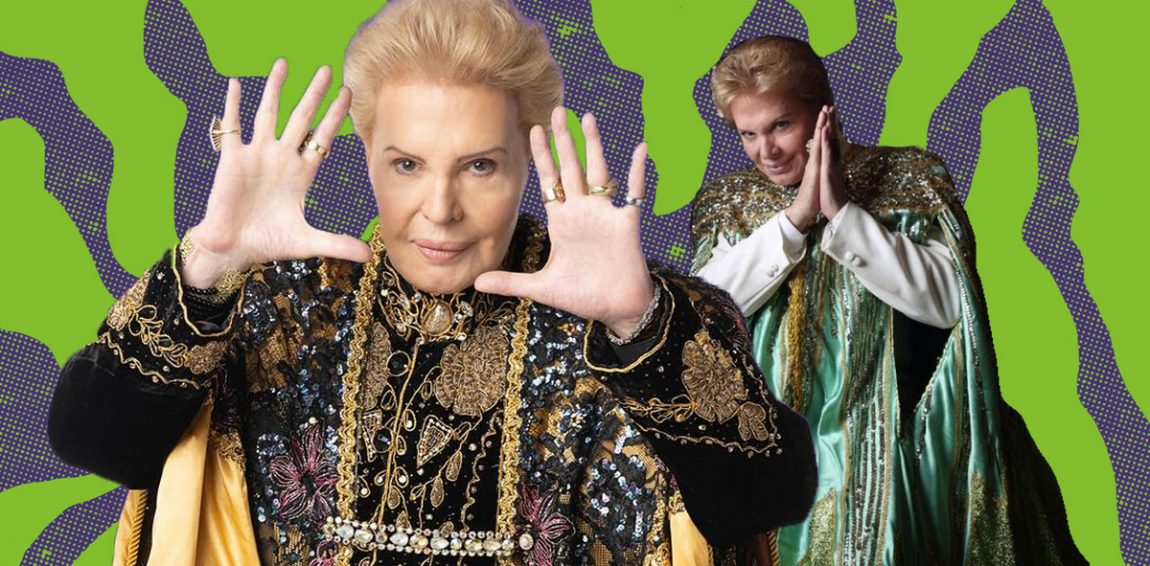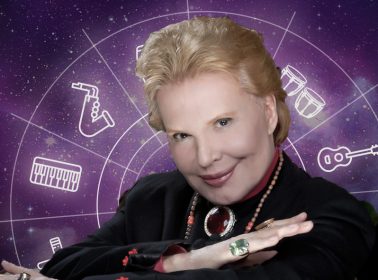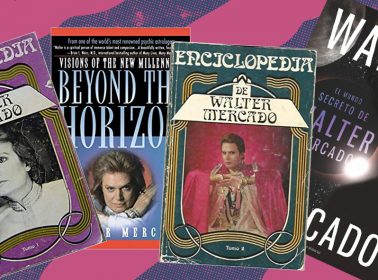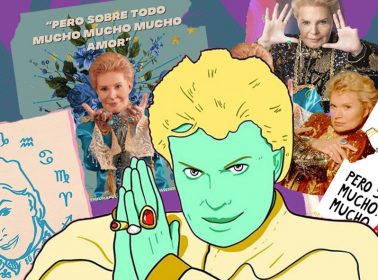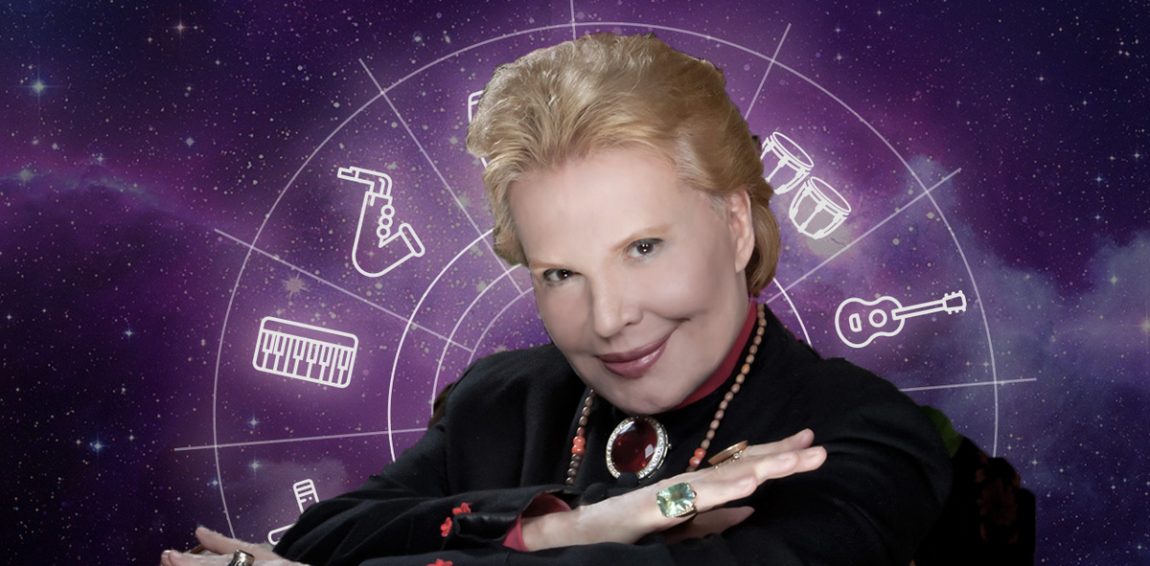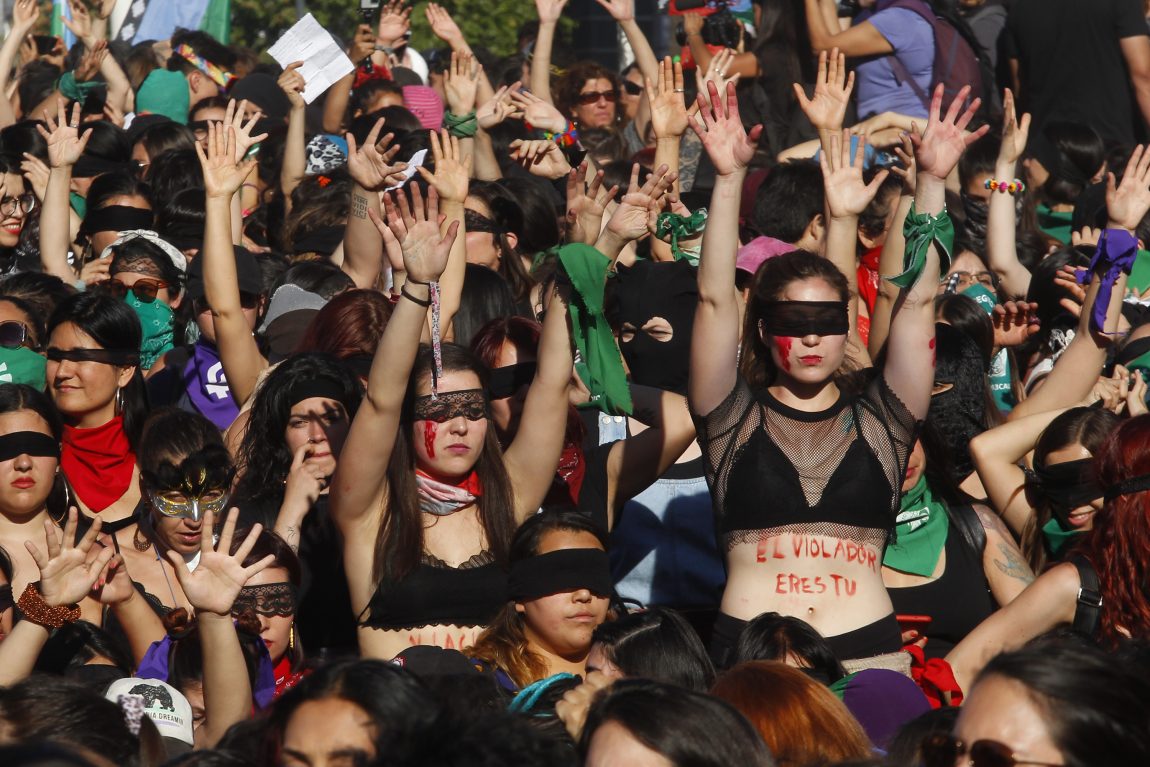REVIEW: ‘This Is Not Berlin’ Is an Explosive Look at How the Art World Was Fighting Homophobia in 1980s Mexico
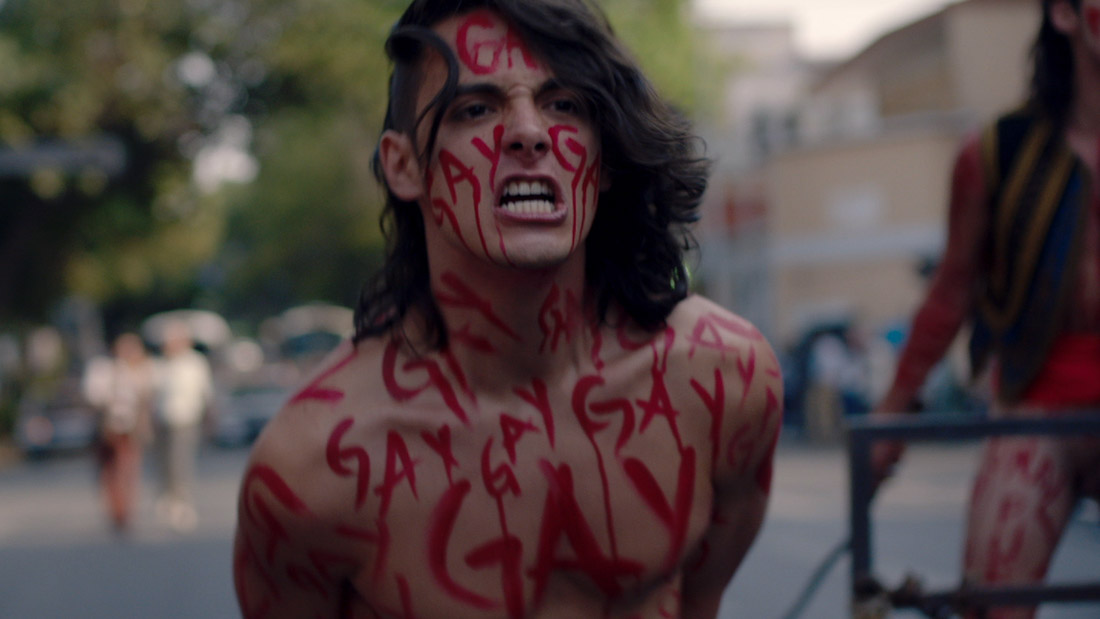
Xabiani Ponce de León appears in 'This is not Berlin'
by Hari Sama. Photo by Alfredo Altamirano.
Courtesy of Sundance Institute
By Carlos Aguilar
Hari Sama’s Esto no es Berlin (This is Not Berlin) sets its sights on 1986’s Mexico City: a year post-earthquake and gearing up for the nation to host its second World Cup. Long-haired teenager Carlos (Xabiani Ponce de León), a character inspired by Sama’s own adolescence, attends an all-boys high school where hypermasculinity defines most social exchanges.
Ferocious fist fights with young men from rival campuses are a quotidian affair in Carlos’ upper-middle class environment. He participates with minimal effort to maintain his status as one of the guys. Sports, of course, function as yet another opportunity for masculine posturing. Heated fútbol passion is not present here solely as a backdrop, but interpreted as a pillar of the machismo that has perpetuated the pervasive homophobia and use of slurs in Mexico.
Encouraged by his rebellious role model, uncle Esteban (played by the director himself), Carlos slowly develops an identity that sets him apart from the majority of his classmates – one marked by sophisticated musical choices and his aptitude for mechanical engineering.
Such countercultural inclination is only intensified when neighbor and best friend Gera (José Antonio Toledano), who grapples with greater insecurities, invites Carlos to The Azteca, a gritty club for intellectuals, musicians, and visual artists that serves as headquarters for their underground collective. There gestate provocative ways to denounce discrimination, the AIDS crisis, and unjust government policies.
The protagonist’s still malleable mind is soon enraptured by these alternative worldviews, and takes on the role of a protégé to group’s leader, Nico (Mauro Sanchez). Meanwhile at home, his estranged relationship with his mother (Roma’s excellent Marina de Tavira), exasperates the feeling of isolation he is fighting.
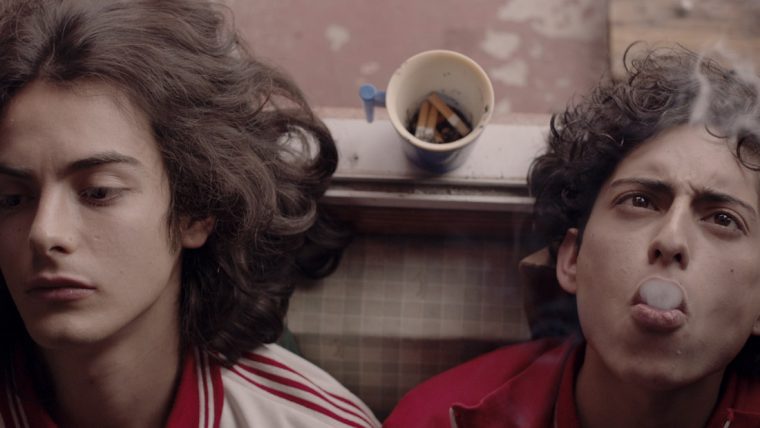
‘This is not Berlin’ photo by Alfredo Altamirano.
By Carlos Aguilar
Hari Sama’s Esto no es Berlin (This is Not Berlin) sets its sights on 1986’s Mexico City: a year post-earthquake and gearing up for the nation to host its second World Cup. Long-haired teenager Carlos (Xabiani Ponce de León), a character inspired by Sama’s own adolescence, attends an all-boys high school where hypermasculinity defines most social exchanges.
Ferocious fist fights with young men from rival campuses are a quotidian affair in Carlos’ upper-middle class environment. He participates with minimal effort to maintain his status as one of the guys. Sports, of course, function as yet another opportunity for masculine posturing. Heated fútbol passion is not present here solely as a backdrop, but interpreted as a pillar of the machismo that has perpetuated the pervasive homophobia and use of slurs in Mexico.
Encouraged by his rebellious role model, uncle Esteban (played by the director himself), Carlos slowly develops an identity that sets him apart from the majority of his classmates – one marked by sophisticated musical choices and his aptitude for mechanical engineering.
Such countercultural inclination is only intensified when neighbor and best friend Gera (José Antonio Toledano), who grapples with greater insecurities, invites Carlos to The Azteca, a gritty club for intellectuals, musicians, and visual artists that serves as headquarters for their underground collective. There gestate provocative ways to denounce discrimination, the AIDS crisis, and unjust government policies.
The protagonist’s still malleable mind is soon enraptured by these alternative worldviews, and takes on the role of a protégé to group’s leader, Nico (Mauro Sanchez). Meanwhile at home, his estranged relationship with his mother (Roma’s excellent Marina de Tavira), exasperates the feeling of isolation he is fighting.

‘This is not Berlin’ photo by Alfredo Altamirano.
Courtesy of Sundance Institute.
More than a coming-of-age, Carlos’ metamorphosis from wallflower to freethinking performance artist experimenting with his sexuality is a reflection of an entire generation of Mexicans, queer and otherwise, who for the first time decried the homogenizing status quo. In turn, the film operates as moving document of a bygone era rarely featured in official historical accounts, since only those who reveled in it firsthand can attest to its risky magic. Sama is one of them.
Although less preoccupied with a detailed recreation its time versus other Mexican period films, what This is Not Berlin exploits to its advantage are the inherently vibrant colors, outfits, and wildly theatrical moments that come with the world it’s portraying. Evocative shots of bare bodies moving in sync with music or the illicit substances they’ve ingested are enhanced by deliberate lighting choices giving The Azteca an ethereal atmosphere. The contrast between this safe haven for otherness and the world beyond its walls is stark.
In an effort to engage with what was taking place outside his suburban bubble, Sama inserts a sequence where Gera and his sister Rita (Ximena Romo), the vocalist of a politically minded band, attend a gig in Ecatepec – a low-incoming area in the outskirts of the city – and are exposed to a grungier musical expression than the polished, more fresa circles they are accustomed to. It’s a small nod to the parallel universes that coexisted, and still do, in the massive metropolitan area divided along class lines.
For its emotional impact, This is Not Berlin depends on the fraternal bond between Carlos and Gera, and how this is affected by their disparate approaches to understanding the people they are becoming. Ponce de León and Toledano exude timeless youth and credible banter, enough to get across the notion that this friendship has been tried and tested. Not surprisingly, by delving into his intimate recollections, Sama, a director with several features to his name, has assembled his most laudable movie yet.
Esto no es Berlin (This is Not Berlin) premiered at the 2019 Sundance Film Festival.
More than a coming-of-age, Carlos’ metamorphosis from wallflower to freethinking performance artist experimenting with his sexuality is a reflection of an entire generation of Mexicans, queer and otherwise, who for the first time decried the homogenizing status quo. In turn, the film operates as moving document of a bygone era rarely featured in official historical accounts, since only those who reveled in it firsthand can attest to its risky magic. Sama is one of them.
Although less preoccupied with a detailed recreation its time versus other Mexican period films, what This is Not Berlin exploits to its advantage are the inherently vibrant colors, outfits, and wildly theatrical moments that come with the world it’s portraying. Evocative shots of bare bodies moving in sync with music or the illicit substances they’ve ingested are enhanced by deliberate lighting choices giving The Azteca an ethereal atmosphere. The contrast between this safe haven for otherness and the world beyond its walls is stark.
In an effort to engage with what was taking place outside his suburban bubble, Sama inserts a sequence where Gera and his sister Rita (Ximena Romo), the vocalist of a politically minded band, attend a gig in Ecatepec – a low-incoming area in the outskirts of the city – and are exposed to a grungier musical expression than the polished, more fresa circles they are accustomed to. It’s a small nod to the parallel universes that coexisted, and still do, in the massive metropolitan area divided along class lines.
For its emotional impact, This is Not Berlin depends on the fraternal bond between Carlos and Gera, and how this is affected by their disparate approaches to understanding the people they are becoming. Ponce de León and Toledano exude timeless youth and credible banter, enough to get across the notion that this friendship has been tried and tested. Not surprisingly, by delving into his intimate recollections, Sama, a director with several features to his name, has assembled his most laudable movie yet.
Esto no es Berlin (This is Not Berlin) premiered at the 2019 Sundance Film Festival.
---30---
